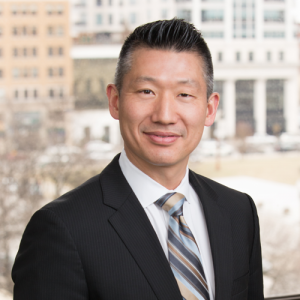Executive Summary
For several years, United States Citizenship and Immigration Services (“USCIS”) has taken the position that teaching hospitals are exempt from the annual H-1B cap on the basis of affiliation agreements with institutions of higher education where clinical training for students is provided onsite at the hospital. With increasing frequency, USCIS is now taking the position that teaching hospitals are no longer exempt from the annual H-1B cap. Because H-1B cap exemption often dictates if and when an H-1B petition may be filed, teaching hospitals should modify their affiliation agreements to align with USCIS’ more stringent interpretation or they risk the possibility that they can no longer successfully claim exemption from the H-1B cap.
Detailed Analysis
Annually there is a cap on the number of H-1B spots that can be assigned to H-1B workers. Presently, the cap stands at 65,000 and those spots have been exhausted for the current USCIS fiscal year. There are many circumstances where an H-1B petition is exempt from the annual cap, including an exemption for a nonprofit employer that is related to or affiliated with an institution of higher education. If an employer asserts cap exemption on this basis, USCIS will examine whether the employer demonstrates that it is one or more of the following:
- Connected or associated with an institution of higher education, through shared ownership or control by the same board or federation;
- Operated by an institution of higher education; or
- Attached to an institution of higher education as a member, branch, cooperative, or subsidiary.
Historically, USCIS has taken the position that teaching hospitals are exempt from the annual cap because they are, pursuant to the third prong, attached to institutions of higher education as a cooperative. This cooperative is evidenced by formal affiliation agreements with institutions of higher education to provide clinical training to health care workers onsite. Current USCIS decisions deviate from this past practice, as USCIS is now more strictly interpreting what constitutes a qualifying relationship for purposes of the H-1B cap. Specifically, a trend has emerged whereby USCIS is now questioning the cap-exempt status of teaching hospitals. According to a recent USCIS Administrative Appeals Office decision, the third prong, at a bare minimum, indicates some type of shared ownership and/or control. While this was technically a non-precedent decision, increasingly USCIS is issuing Requests for Evidence based on this more stringent interpretation.
It is very difficult for an entity to meet the first and second prongs above, as many teaching hospitals are not controlled by the same board or federation as the institutions of higher education that they are connected or associated with, nor are most teaching hospitals operated by an institution of higher education. To that end, the third prong has historically been the avenue by which teaching hospitals establish H-1B cap exemption.
This issue is of growing concern to teaching hospitals that employ H-1B workers, as exemption from the H-1B cap dictates if and when an H-1B petition may be filed. To that end, teaching hospitals should consider revising existing affiliation agreements with their related institutions of higher education to align with USCIS’ strict interpretation and successfully claim H-1B cap exemption. If existing affiliation agreements are not modified, it is possible USCIS will take the position that the teaching hospital is no longer exempt from the H-1B cap, regardless of prior decisions to the contrary.
Should you wish to modify your affiliation agreements or have any questions regarding this guidance, please do not hesitate to contact
- Michael L. Kim (317-977-1418 or mkim@wp.hallrender.com),
- Natalie L. Dressel (317-977-1481 or ndressel@wp.hallrender.com)
- Your regular Hall Render attorney.

